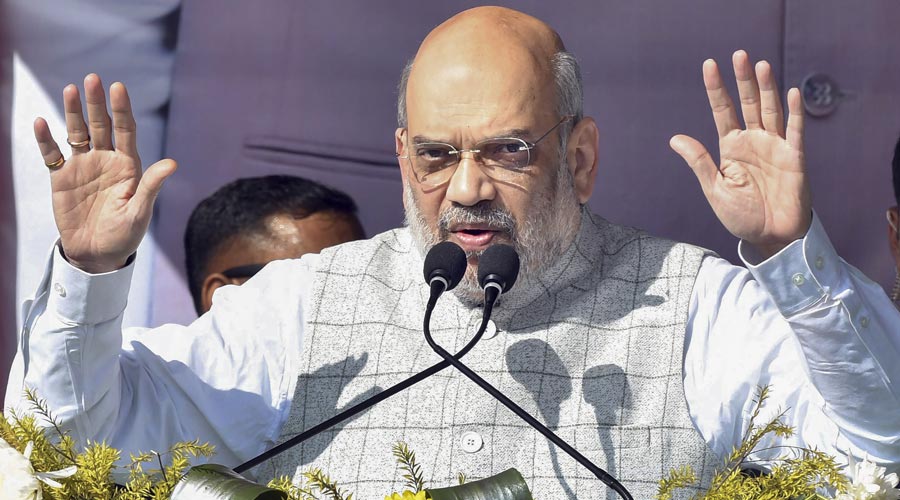Gayatri Chakravorty Spivak, literary theorist, critic and professor at Columbia University, who was among the guests of honour at the Netaji Birthday Assembly at the Netaji Research Bureau on Monday, said in her address that democracy, which implies full civil and political equality for all minorities, “is hurt” in India.
Excerpts from what she said:
On the 75th birthday of our Independence, as its structural principles are beginning to disappear, it is important to remember the leaders of the nationalist struggle. But it is not only a matter of remembering that past. It is also a matter of picking up the relay when Sugata (Bose, Netaji’s grandnephew and history professor at Harvard University) was saying “shuno deshbasi”. Picking up the relay, advancing the original goals to the solution of our imminent problems today, which are different.
Democracy is the most hospitable system and implies full civil and political equality for all minorities. Democracy is defined by the minority, although it is supposedly run by the majority. That’s the peculiar thing about democratic hospitality.
We now suffer from a withdrawal of citizenship, and therefore of civil rights, from non-Hindu minorities. Our democracy is hurt. Professor Ismat Mehdi’s presence is part of our ritual healing and I really loved hearing her words. As of course you have now heard in detail she is the niece of Abid Hasan, Subhas Chandra’s sole companion on his voyage from Europe to Asia.
I am a local girl. So at least one example of religious harmony will come from my family background. Netaji’s dear friend Dilip Kumar Roy, a motherless child, was my mother’s first cousin and grew up largely in her childhood home. As he grew to college age, he brought in his friends and my mother gained three additional elder brothers: Mantuda (Dilip Kumar Roy) was already there, and the two others were Subhasda (Subhas Chandra Bose) and, important for our argument, Kajida (Kaji Najrul Islam). Religious harmony so natural that it went unnoticed. That is the comfort of a fearless democracy. It goes unnoticed. You don’t have to say it.
We must win it back. That is not easily achieved with the groups so sub-humanly stateless as the Rohingyas. But I cannot not mention them when we speak of minority rights on this important occasion.
In Sankha Ghosh’s poem Maati (Earth), the protagonist is not just a victim but a carrier of democracy. Democracy is the other people.
(Gayatri Chakravorty Spivak spoke to The Telegraph later about how it was possible to win back democracy when a divisive culture was so rampant across the country.)
Of course it is possible. It may be that there is a divisive culture here. But it is also true there is a general spirit of conflictual coexistence of the communities over the centuries. That’s bliss. A very strong traditional unity, much stronger than sentimentality. It’s realistic.
I am interested in the real situation. I am not just an academic-activist, (but) a real activist. The reality is, there is an existence of a historical tradition of realistic living together of all the communities. It is not something sentimental. Sentimental things don’t last.











